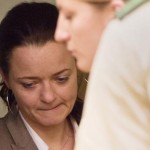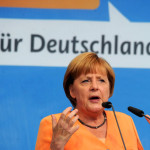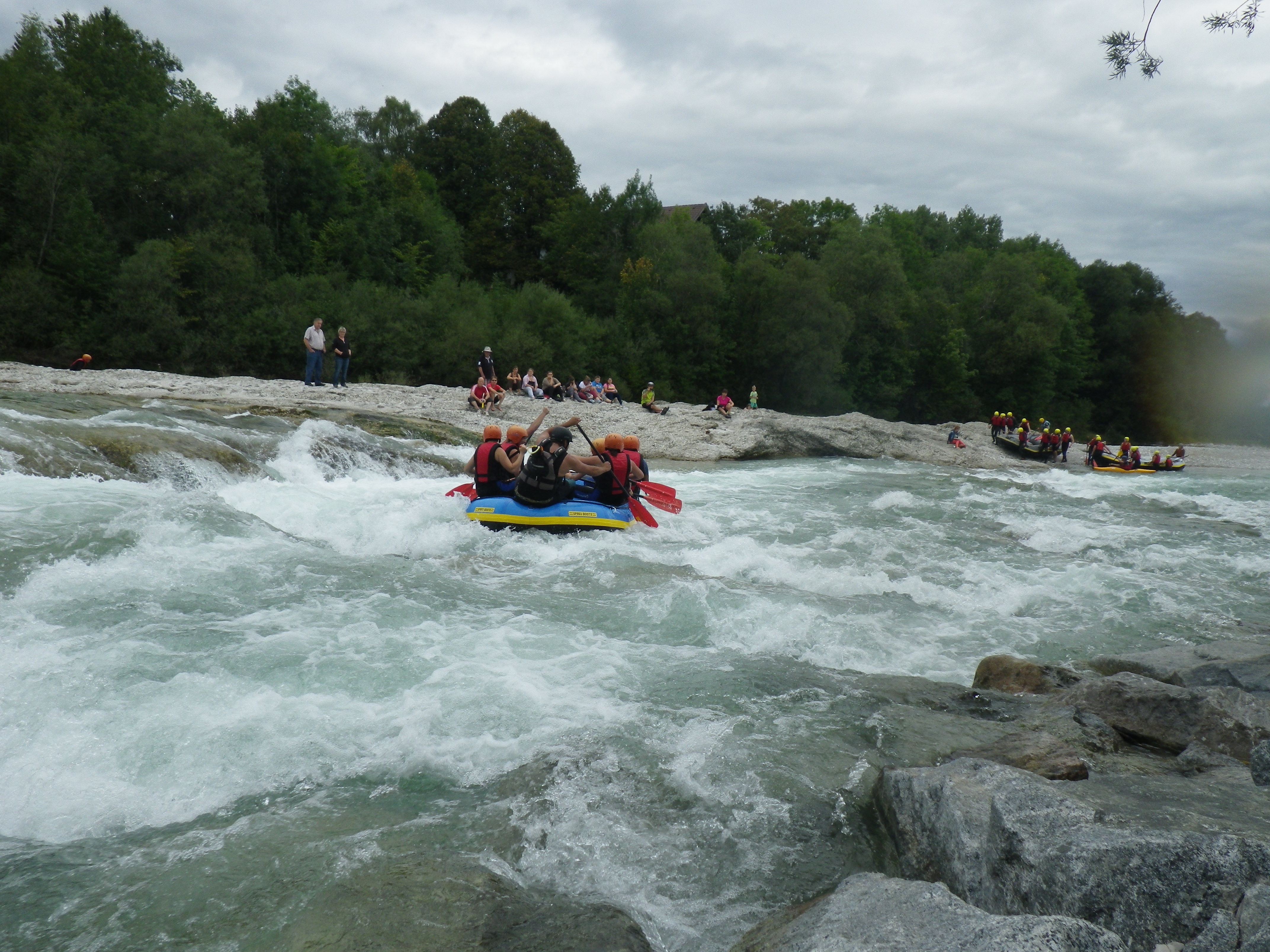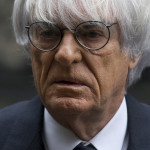EU Wants “Strong Response” to Syrian Chemical Weapons Use
Vilnius (dpa) - The European Union called for a “clear and strong response” to the alleged use of chemical weapons in Syria, saying there was “strong evidence” that President Bashar al-Assad’s regime was behind the August 21 attack.
The statement, issued after US Secretary of State John Kerry met EU foreign ministers in Lithuania Saturday, marked a clear shift toward support for a US-led intervention
U.S. President Barack Obama, left, walks with Germany’s Chancellor Angela Merkel toward a group photo outside of the Konstantin Palace in St. Petersburg, Russia on Friday, Sept. 6, 2013. World leaders are discussing Syria’s civil war at the summit but look no closer to agreeing on international military intervention to stop it. (AP Photo/Alexander Zemlianichenko) dpa / photoalliance
in Syria, although they did not explicitly back military action. “Information from a wide variety of sources confirms the existence of such an attack and seems to indicate strong evidence that the Syrian regime is responsible for this attack,” EU foreign policy chief Catherine Ashton said. ”It is the only one that possesses chemical weapons agents and the means for their delivery in a sufficient quantity. A clear and strong response is crucial to make clear that such crimes are unacceptable and that there can be no impunity.”
The US has accused Syria of using chemical weapons in an attack near Damascus that reportedly killed 1,429 people. The government has denied responsibility. Kerry praised the bloc’s “strong statement about the need for accountability.” Ashton stressed “the need to move forward with addressing the Syrian crisis through the UN process,” referring to the results of a UN investigation into the August 21 attack.
French President Francois Hollande, left, speaks with Germany’s Chancellor Angela Merkel during a meeting with G20 leaders which addresses business and labour issues on the sidelines of the G-20 summit in St. Petersburg, Russia on Friday, Sept. 6, 2013. World leaders are also discussing Syria’s civil war at the summit but look no closer to agreeing on international military intervention to stop it. (AP Photo/Tatyana Zenkovich, Pool) dpa / photoalliance
EU ministers had previously disagreed over the importance of the UN probe, which is not tasked with identifying who carried out the attack. French President Francois Hollande said Friday his country would not take action before seeing the report, enabling the EU to rally around a common position. France is one of four EU members - with Britain, Spain and Italy - that expressed support for the US stance at the G20 summit in St Petersburg.
Germany, which had been notably absent from the 10 countries backing Washington, added its support Saturday after the EU reached its common position, Foreign Minister Guido Westerwelle said. The question of military action is politically sensitive in intervention-shy Germany, where elections are due in two weeks.
A survey released Saturday showed that 68 per cent of French citizens also opposed involvement in a military campaign. The US will not take any military steps until Congress votes on the issue in the coming week, but has left open the question of whether it would await the UN findings. The EU foreign ministers urged Washington not to make any decision before the UN report is available, Westerwelle said. Ashton called for legal accountability for the alleged chemical attack, which she called “a blatant violation of international war, a war crime and a crime against humanity.”
Arab League chief Nabil al-Arabi warned of the regional repercussions of military action against Syria. ”If America and its allies hit Syria and the Syrian regime tried to retaliate in a certain way, the region would erupt in flames and a war would break out,” he told Egypt’s state-run al-Ahram newspaper. Later Saturday in Paris, Kerry called the crisis over chemical weapons “our Munich moment.”
“This is our chance to join together and to pursue accountability over appeasement,” he said.
Al-Arabi flew Saturday to Paris, where he was to meet with Kerry for talks on Syria and the Middle East peace process. Retired US general David Petraeus on Saturday urged Congress to authorize action against Syria. ”Such action is necessary in order to deter future use of chemical weapons in Syria and to degrade the regime’s overall military capabilities,” he said, “also to ensure that Iran, North Korea and other would-be aggressors never underestimate the United States’ resolve to take necessary military action when other tools prove insufficient.”
A group of people protest against the massacres both in Syria and in Egypt by driving their cars in convoy through the streets of “Osloer Strasse”, Berlin. Erbil Basay / Anadolu Agency dpa / photoalliance
CNN aired a series of new video clips showing victims of the August 21 attack suffering neurological symptoms including spasms and frothing at the mouth. The network said the footage was authenticated by US intelligence agencies and provided to members of Congress, who provided it to CNN. The UN said more than 100,000 people have been killed since March 2011, when rallies against al-Assad were repressed by force and quickly descended into civil war.
Last week, the UN said the Syrian conflict has displaced 6.25 million people - the world’s largest refugee population. Some 2 million Syrians - more than half of them children - have fled the country, and 4.25 million are internal refugees. The army and rebels were engaged in heavy fighting on the outskirts of the mainly Christian town of Maalola, near Damascus, a pro-opposition watchdog group said.
The Britain-based Syrian Observatory for Human Rights said regime forces were shelling rebel positions around the town. Maalola is a symbol of the Christian presence in Syria, and many of its inhabitants speak Aramaic, the language believed to have been spoken by Jesus Christ.







 Euro Converter
Euro Converter